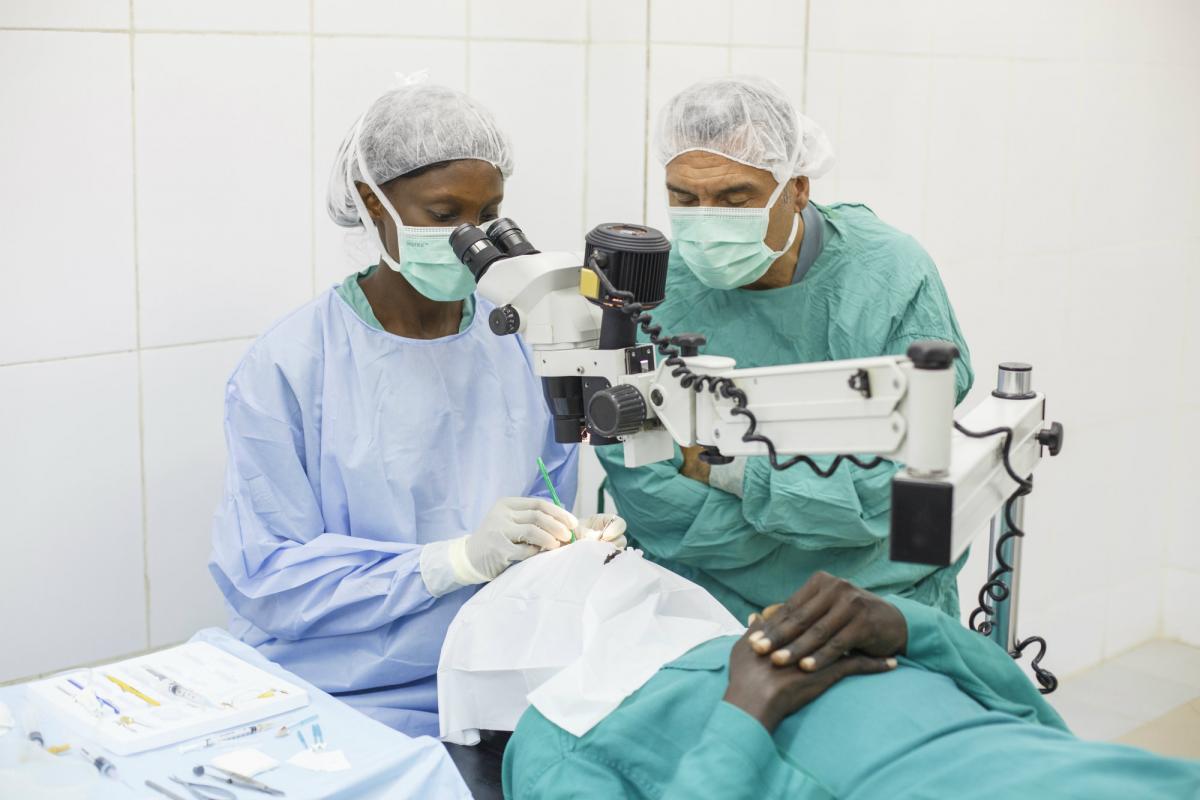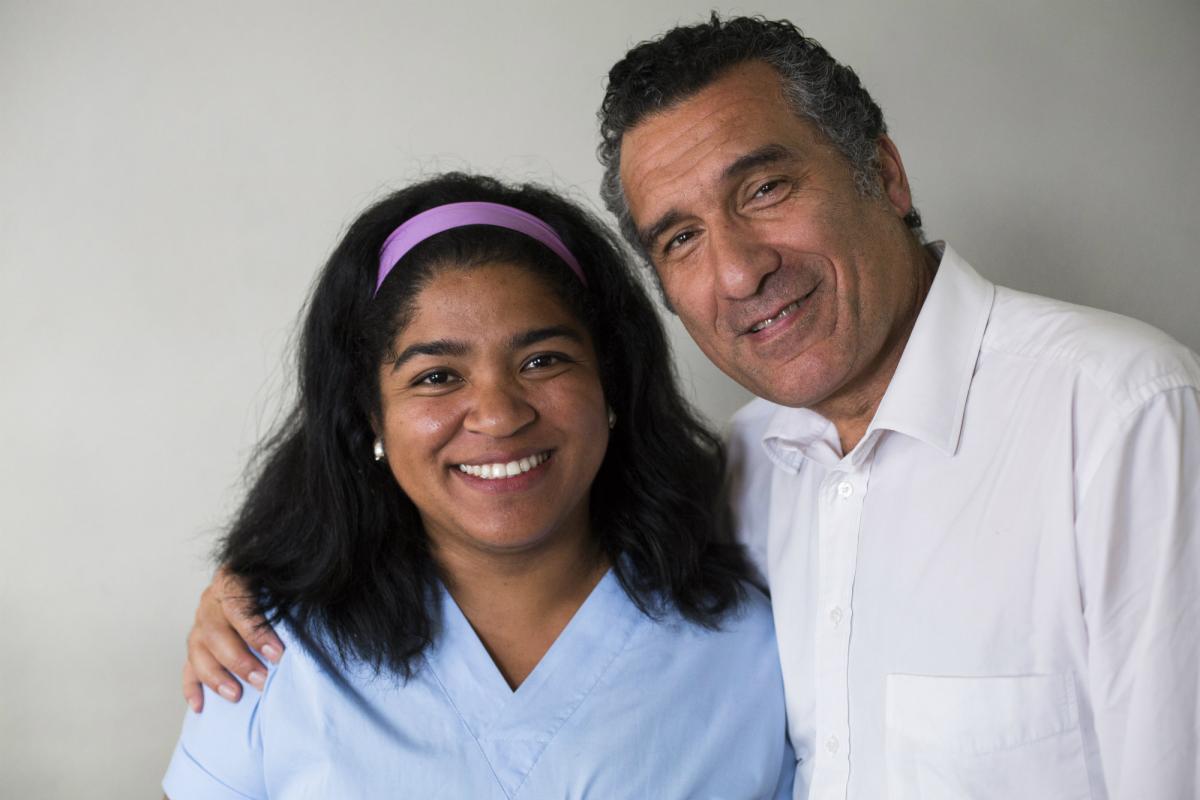Join a powerful, unprecedented alliance for better eye health for all.
Join IAPB-
Choose an alternate language here
For Africa Day, Dr. Jean-marie André HelpMeSee’s Medical Officer for Africa writes about solutions to overcome shortage of trained cataract specialists and the work they are doing to change that.

Africa Day celebrates the independence and progress of nations across the African continent, with this year’s theme devoted to “Harnessing the Demographic Dividend Through Investments in Youth.” Indeed there has been great progress over the years, with many countries in Africa leading economic and social development, including major improvements in public health. With more than half of Africa’s population under the age of 24, the future looks very bright for continued growth and development, yet a major barrier remains in many places – preventable blindness and visual impairment caused by cataracts.
According to the WHO, cataracts account for the majority of preventable blindness in Africa, even though sight can be restored through surgery. An estimated 6 million patients in Western and Sub-Saharan African countries remain waiting for treatment. The main challenge being the shortage of trained cataract specialists – in some countries of Africa there are as few as one ophthalmologist per 1 million people. But there are solutions which can help improve the lives for all Africans.
Innovative Solutions
When I started my career I realized there was a huge need for training in the developing world. In 2002 I traveled to Mali with my colleagues from the University of Marseilles and the West African Health Organization to train 50 ophthalmologists in Manual Small Incision Cataract Surgery (MSICS). MSICS is a safe and effective treatment for cataracts without the need for expensive equipment and maintenance, making it a good fit to provide treatment in developing countries of Africa.
Another challenge to providing treatment in Africa is that hospitals do not always have capability to sterilize surgical instruments. While MSICS helped reduce the number of instruments needed for cataract treatment, a new innovation was needed to make the procedure more practical. So in 2008 my team developed a single-use surgical kit which was pre-sterilized and had all the tools needed to complete MSICS.
A few years later I learned about HelpMeSee, an innovative non-profit organisation dedicated to training cataracts specialists in the developing world in MSICS (the same treatment I was using) through the breakthrough technology of simulation-based training. HelpMeSee reached out to my team because they wanted to build on the success of the MSICS surgical kit and replicate it worldwide. Not long after I joined their team as Medical Officer for Africa, to continue training the next generation of cataract specialists in Africa, the majority of whom we hope will be women.

Our work in Africa
I’m proud of the progress HelpMeSee has made in Africa, launching campaigns to restore sight in Togo, Sierra Leone, Madagascar, and the Gambia, with long-term plans to train surgeons and support safe surgeries across Africa. We work together with local governments, partner hospitals, and local surgeons to build sustainable systems to provide cataract care in their own communities. By investing in the next generation of cataract specialists, we hope that all Africans will enjoy equal access to cataract treatment and make the future bright for millions across the continent.
Liked it? We have more posts for Africa Day. Here are some: